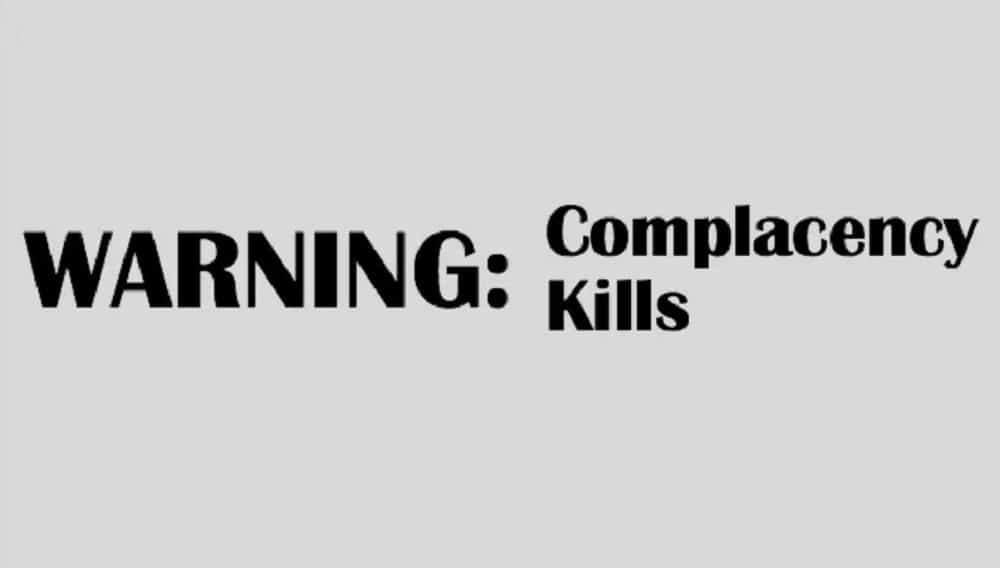
IT is a dynamic sector of our economy. That means that it is critical that you are a dynamic employee and participant. At its core, being complacent and resistant to change can decrease your career prospects and promotions.
Being in the industry for over 30 years, I have spoken with many lead, mid level and junior front-end developers. Based on what they shared with me over the years, here are the top 5 mistakes front-end developers have told me that caused their career to stall.
1. Poor communication skills

One of the most common career missteps I have heard over the past 30 year in front-end developers is to focus too much on their technical skills and not developing their softs skills, particularly formal presentation and effective communication skills.
In today’s business world, IT touches everyone.
That is why it is essential to always keep leaders and other company stakeholders informed of potential challenges, bottlenecks, and suggestions on ideas you have to improve the overall outcome of a project. How you communicate challenges or your ideas in the long run will demonstrate your ability to handle more complex and higher level responsibilities.
Presenting technical challenges to a large group of non-technical people can be hard but is often cited as a top must have skills to keep your career moving forward.
Another important aspect of your communication skills is how you communicate with your boss and other employees. Especially those that fall outside of the IT realm (e.g. finance, marketing, sales, etc). The nature of IT work is complex to understand. The simpler you can make it for someone, the better. It can be easy to get frustrated and have a short fuse when someone does not pick up quickly on what you are saying. But, it is crucial that you develop other ways or reword your ideas in a way that relates to your users. If your boss is able to see you as someone that communicates effectively, efficiently, and passionately you will set yourself miles ahead of your IT peers.
My experience over the years in helping hiring managers hire for front-end developer roles is that those with strong presentation and communication skills are elevated in their career quicker than most.
2. Not learning outside of work

As we all know, the only thing that is constant is change. The IT industry is constantly evolving. In order to keep pace and advance your career you should consider learning and developing new skills while you are not on the clock. A good habit is to pick one new skill you’re going to train yourself on and come up with a schedule. Some examples of skills to learn are the ability to write full stack applications in a single front-end language; learn microservices and web API development; have experience with non-relational databases; learn to test with CI/CD and architect solutions with 3rd-party plugins are discussed in our article: top ways for front-end developers can stay competitive in today’s market.
Hiring managers look for employees that can demonstrate the ability to learn new skills on their own.
By not over relying on your employer to teach you new technologies, it can allow you to teach yourself things you’re personally interested in and keep your job fresh. This will allow you to introduce new technologies that can help the business and your career.
Taking time each year to learn about new tools or platforms will keep you actively engaged in your own career, give you the ability to meet and network with other developers outside of your company, while also setting yourself apart from others within your company. Some new technology that CIO’s look for their Front-End Developers to have include:
- Angular js
- Experience testing CI/CD
- React js
- Architecturing 3rd party plugins
- Vue js
- Kubernetes
3. Being resistant to writing full stack applications in a front end language and architecting solutions with 3rd party plugins

Resistance to technological advancement is a detrimental habit in any career especially in IT. But recently there are certain skills that separate one front-end developer from another. One of the skills senior developers have shared with me is they wished they had picked up on full stack development sooner. Hiring managers highly value developers who have the ability to use AngularJS, React, or VueJS and write a full stack database application.
Based on what I have heard from CIOs and CTOs, many organizations would ideally like their front-end developers to have the ability to develop various back-end applications and have the ability to write a full stack application. As a front-end developer wanting to grow their career and/or keep your skills up to date, being able to write full stack applications is a highly sought after skill to learn.
Staying competitive in the IT marketplace (especially one rocked by a pandemic and a recession), front-end developers should make the effort to learn to architect solutions with 3rd-party integrations in mind. I have heard from CIOs and CTOs that the ability to create code that easily integrates with 3rd-party plugins gives the organization greater flexibility to add to the application in the future.
4. Avoid job hopping

Do you feel you might be moving around too much in your career? While early on in your career, it is normal and can even be beneficial to work at a couple of different jobs. However, There has to be good reasons behind each decision to change and as you start to progress in your career you should consider sticking around for 3+ years at a time. Hiring managers use a candidate’s history of job hopping as a compass in determining if they will be a fit for their company.
Some companies have a high turnover and will be able to look past frequent job changes, but most look for candidates that demonstrate dependability and loyalty (typically indicated by long tenures at companies). A CIO recently told me that job hopping can make or break a seemingly great candidate, because of the uncertainty related to retention, engagement, and culture within the company. The moral of the story is that, unless you are a contractor, you need to make sure you think out each career decision you make and really examine your reasons for wanting to make a change.
A good framework to try to achieve is to not have more than 3 jobs in the past 10 years. Most hiring managers tell me if a candidate has more than 3 jobs in the past 10 years “let’s hold off to see if you can find someone with a more stable job history”. This does exclude contractors.
5. Develop a career road map

One way to help you in making thoughtful career decisions and in avoiding job hopping is developing a career road map. A career road map is a tool that you can use to develop a framework of how you want your career to go. A great exercise to conduct is to think about where you want to be short term (3-5 years) and long term (10-20 years) from now in your career. Hiring a coach or asking a mentor to help with your road map has proven to be a great way to get started.
What is your end goal?
Once you have that nailed down, come up with a couple different paths based on what kind of skills you would like to develop, what kind of promotions you want to get, and what kind of companies you want to work for. All of these factors go into shaping your career.
An important note is build flexibility while traversing your roadmap. It should act as a system that can allow you to measure your progress and identify the right opportunities, but not as a rigid structure that must be followed to a T. Do not let the map hold you back. Think of it as a map of the US. There are many routes you can take to get from the east coast to the west coast, but as long as you have a sense of where you’re going you can make it to your destination.
Emerald’s advice
When it comes down to it, slight adjustments can have positive results on career trajectory and prospects. Avoid these mistakes by investing into yourself by reading books, getting a mentor, and being mindful of your work. Happy developing!

